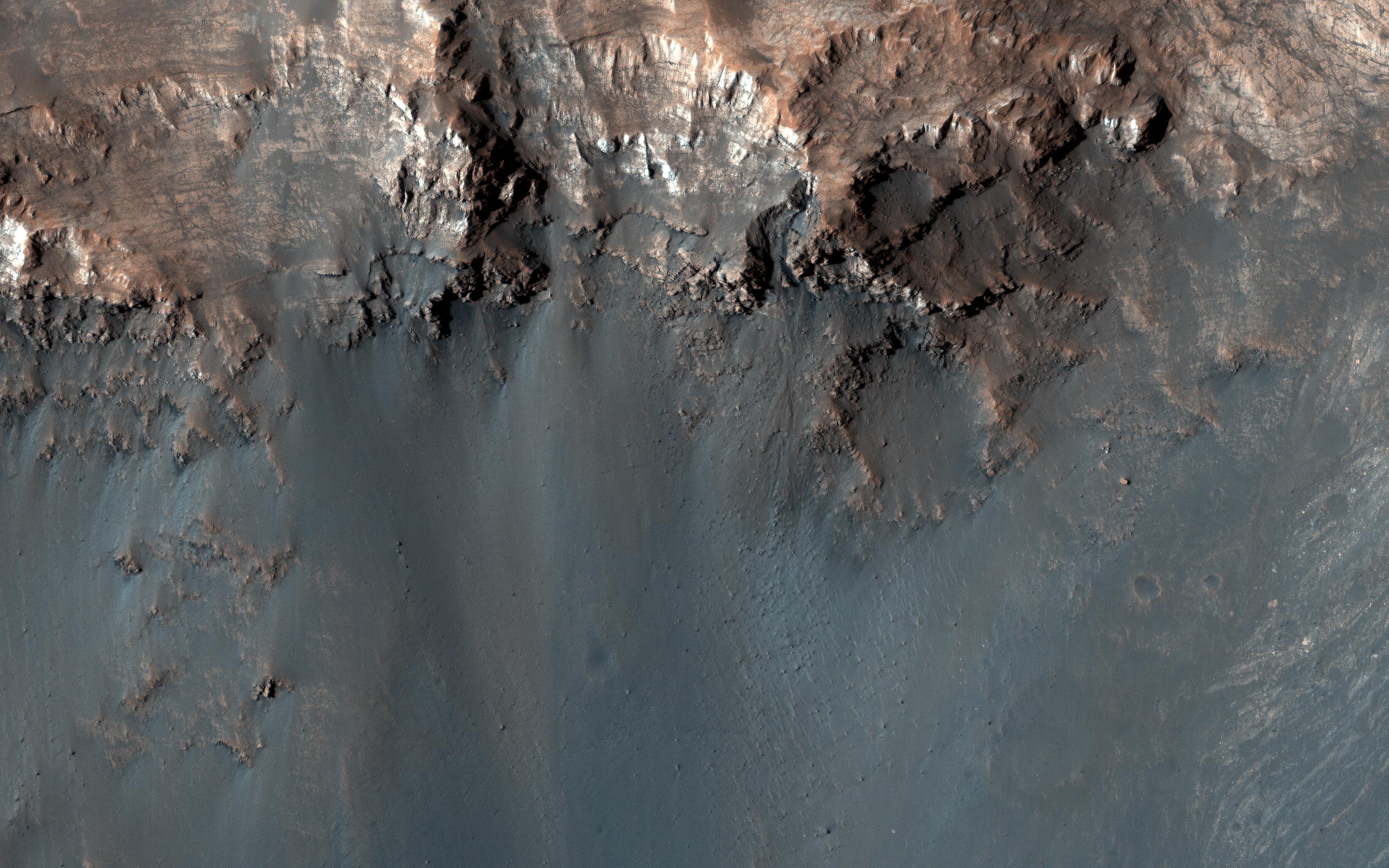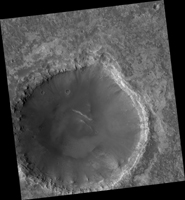
|
Keeping a Watchful Eye
- Click the image above for a larger view
- Full-Res JPEG (2880 x 1800) (865.4 kB)
- Full-Res TIFF (2880 x 1800) (14.2 MB)
Caption:

Map Projected Browse Image
Click on image for larger version
Existing images of this impact crater show a couple of dark lineations on the equator-facing wall that resemble small recurring slope lineae (RSL). However, unlike typical RSL, these lines persist for several Mars years with only minor changes.
We are continuing to monitor this site to understand how they differ from "standard" recurring slope lineae.
The map is projected here at a scale of 25 centimeters (9.8 inches) per pixel. (The original image scale is 28.8 centimeters [11.3 inches] per pixel [with 1 x 1 binning]; objects on the order of 86 centimeters [33.9 inches] across are resolved.) North is up.
Background Info:
The University of Arizona, in Tucson, operates HiRISE, which was built by Ball Aerospace & Technologies Corp., in Boulder, Colorado. NASA's Jet Propulsion Laboratory, a division of Caltech in Pasadena, California, manages the Mars Reconnaissance Orbiter Project for NASA's Science Mission Directorate, Washington.
Cataloging Keywords:
| Name | Value | Additional Values |
|---|---|---|
| Target | Mars | |
| System | ||
| Target Type | Planet | |
| Mission | Mars Reconnaissance Orbiter (MRO) | |
| Instrument Host | Mars Reconnaissance Orbiter | |
| Host Type | Orbiter | |
| Instrument | High Resolution Imaging Science Experiment (HiRISE) | |
| Detector | ||
| Extra Keywords | Color, Crater, Impact, Map | |
| Acquisition Date | ||
| Release Date | 2020-04-17 | |
| Date in Caption | ||
| Image Credit | NASA/JPL-Caltech/University of Arizona | |
| Source | photojournal.jpl.nasa.gov/catalog/PIA23854 | |
| Identifier | PIA23854 | |
